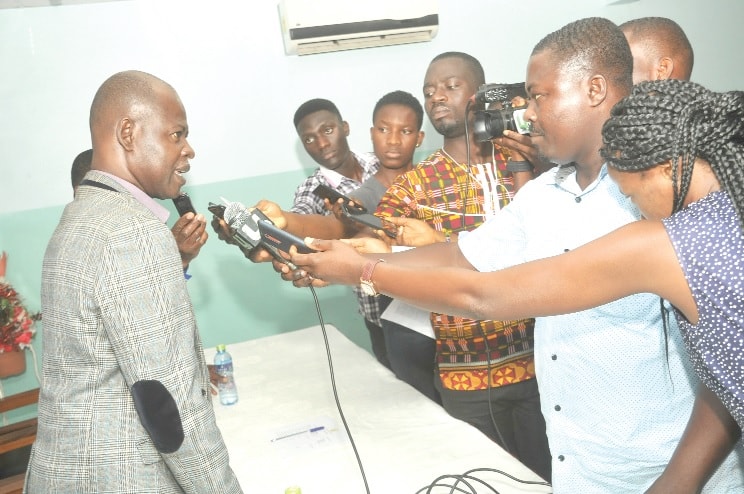
PIAC to investigate GH¢403.74m ABFA account
The Public Interest Accountability Committee (PIAC) may refer issues concerning the whereabouts of GH¢403.74 million, being an unspent portion of the 2017 Annual Budget Funding Account (ABFA), to state investigative bodies, if the Ministry of Finance fails to give response to its queries about the fund.
The committee is frustrated by the attitude of the ministry after it requested for information four months after it had made demand for it.
Advertisement
The ABFA is an account set up by the government that receives allocation from oil and gas revenue to support the government’s budgets.
PIAC frustrations
Reacting to a statement issued by the Ministry of Finance which said the amount was transferred into the Treasury’s Single Account in 2017 in accordance with Section 46 of the Public Financial Management Act, 2016 (Act 921), the PIAC Chairman, Dr Steve Manteaw said the ministry’s response did not address the committee’s enquiry and only brought up further issues.
Addressing a press conference in Accra, yesterday, Dr Manteaw said “a number of options are opened to us including referring the matter for audit investigations. We can also resort to other state investigative bodies such as Economic and Organised Crime Office (EOCO), Special Prosecutor’s office and other institutions of state that have the mandate to investigative matters of this nature.”
Further particulars
He said although the committee had written to the ministry to render an account of how the money was used, it had not responded to the letter but “we have seen the response in the media to which we are responding to.”
“The response as we found in the media do not satisfy us. We want further and better particulars because the Treasury Single Account as we know it is a transit account. Monies are transferred into this account for expenditure. We suspect that the monies may have been spent.
“So we want the government to tell us how they have been spent if indeed they have been spent. If they have not been spent, we need evidence that this amount is still being kept. Then on that note, we will recommend that the monies be returned to the Petroleum Holding Fund for budgeting so that the Public Interest and Accountability Committee can track its utilisation and report to the citizens,” he said.
Dr Manteaw asked questions about the government’s response in the media asking “When was this transfer into the Treasury Accounts effected? How is the specific amount of GH¢403.74 million, being petroleum revenue accounted for.”
Accountability
He said assuming without admitting that the transfer of the funds to the treasury account was legal, it did not absolve the ministry from accounting to the public, how the funds wereused.
“It bears noting that, if the ministry’s explanation is to stand, then it defeats the entire purpose of the Petroleum Revenue Management Act, 2011 (Act 815) which was enacted specifically to ‘provide the framework for the collection, allocation and management of petroleum revenue in a responsible, transparent, accountable and sustainable manner.
He said the committee was of the view that the “sweeping of the unspent amount into an account other than the Petroleum Holding Fund, and co-mingling it with other funds”, did only open the floodgates for potential derailment of the mechanism in Act 815 to ensure its judicious use.
Half year report
Meanwhile, Dr Manteaw has indicated that the committee might publish its 2018 half year report without the ABFA expenditure because the committee’s request for the half year data for 2018 from the Ministry of Finance had not received response.
“We requested for the data on July 17, 2018 to enable us put together our half year report. The Ministry has so far provided data on the ABFA allocations, but has failed to release data on expenditure,” he explained.
That, the chairman said, had been a hindrance to PIAC meeting its reporting timeline of September 15 for the mid-year report.
Tradition
Dr Manteaw said it had become a tradition for the committee to write to the ministry or any other reporting entity for clarification whenever it made adverse findings against them.
He recalled a physical inspection of oil-funded projects by the PIAC upon learning that the Minister of Finance had failed to fully comply with the Petroleum Revenue Act, 2011 for five years.
The Act requires that the minister provides an update on the stage of implementation of oil-funded projects, as part of its reconciliation Report to Parliament.
“On its return from the field, PIAC wrote to the Minister of Finance in August 2016 to seek explanation for what it had uncovered during its project inspection. The committee is yet to receive an acknowledgement, let alone the explanation sought,” he said.




